BMW 7 Series VS Peugeot 408 – Specs, Efficiency & Price Comparison
Which model is the better choice – the BMW 7 Series or the Peugeot 408? We compare performance (571 HP vs 225 HP), boot capacity (540 L vs 536 L), efficiency (1 L vs 15.10 kWh1.40 L), and of course, the price (101300 £ vs 34300 £).
Find out now which car fits your needs better!
The BMW 7 Series (Sedan) is powered by a Plugin Hybrid or Diesel MHEV engine and comes with a Automatic transmission. In comparison, the Peugeot 408 (SUV) features a Plugin Hybrid, Electric or Petrol MHEV engine and a Automatic gearbox.
When it comes to boot capacity, the BMW 7 Series offers 540 L, while the Peugeot 408 provides 536 L – depending on what matters most to you. If you’re looking for more power, you’ll need to decide whether the 571 HP of the BMW 7 Series or the 225 HP of the Peugeot 408 suits your needs better.
There are also differences in efficiency: 1 L vs 15.10 kWh1.40 L. In terms of price, the BMW 7 Series starts at 101300 £, while the Peugeot 408 is available from 34300 £.
Compare all the key specs now and find out which model fits your lifestyle best!
BMW 7 Series
The BMW 7 Series represents the pinnacle of luxury and performance in the executive car segment, offering an unparalleled driving experience. Its elegant design combines aesthetic appeal with advanced technology, ensuring both comfort and connectivity for its passengers. With cutting-edge driver assistance systems, this flagship model showcases the brand's commitment to innovation and safety.
details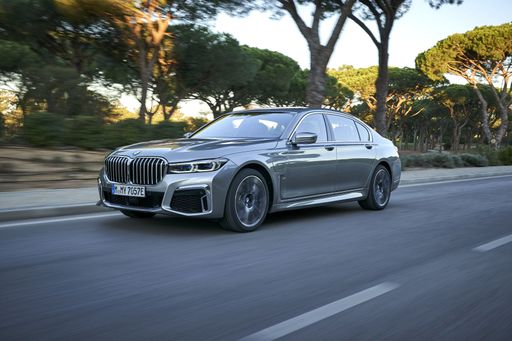 @ press.bmwgroup.com
@ press.bmwgroup.com
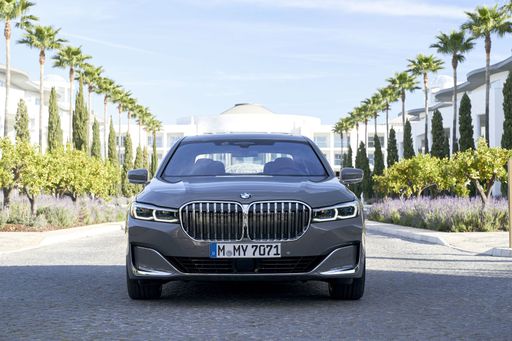 @ press.bmwgroup.com
@ press.bmwgroup.com
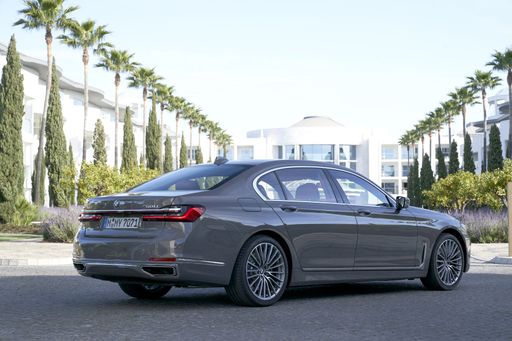 @ press.bmwgroup.com
@ press.bmwgroup.com
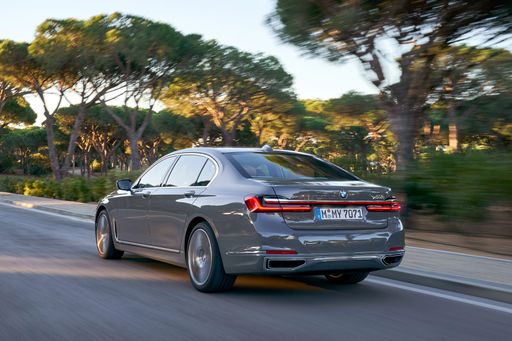 @ press.bmwgroup.com
@ press.bmwgroup.com
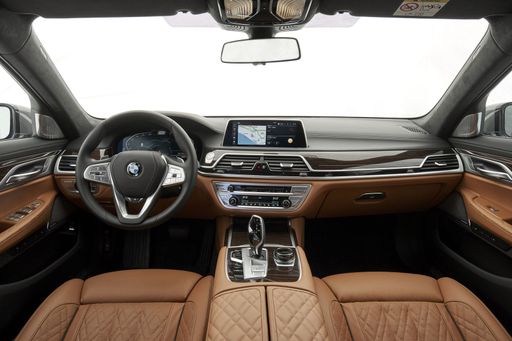 @ press.bmwgroup.com
@ press.bmwgroup.com
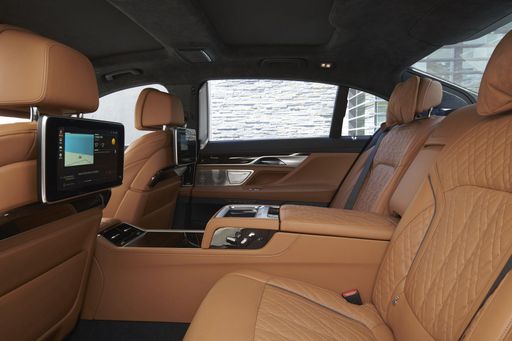 @ press.bmwgroup.com
@ press.bmwgroup.com
Peugeot 408
The Peugeot 408 captivates with its sleek and dynamic design, setting it apart in the competitive crossover market. Its interior offers a perfect blend of comfort and cutting-edge technology, creating an enjoyable driving experience. The model's efficient performance and modern features make it a compelling choice for those seeking both style and functionality in their vehicles.
details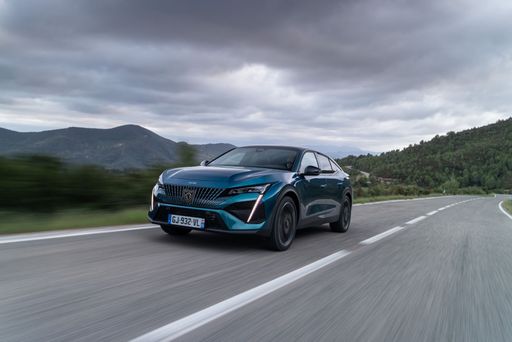 @ media.stellantis.com
@ media.stellantis.com
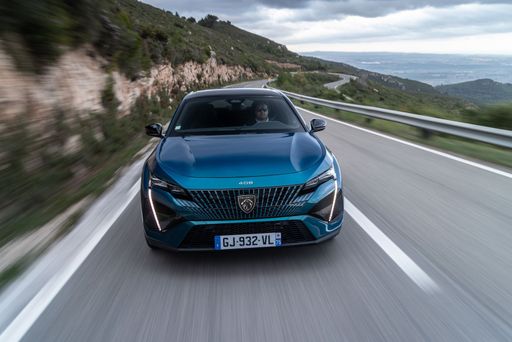 @ media.stellantis.com
@ media.stellantis.com
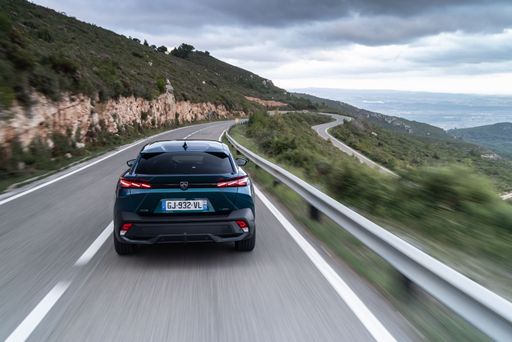 @ media.stellantis.com
@ media.stellantis.com
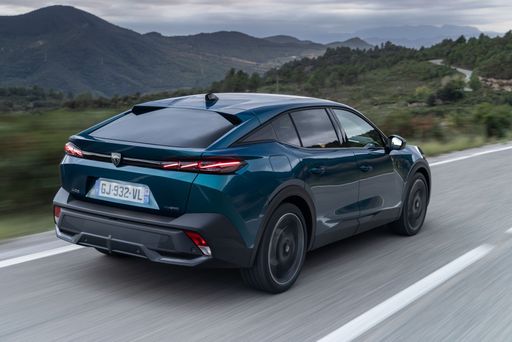 @ media.stellantis.com
@ media.stellantis.com
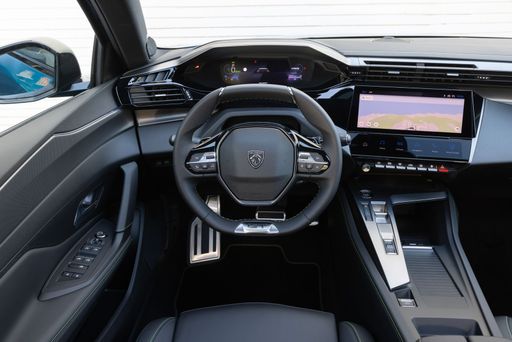 @ media.stellantis.com
@ media.stellantis.com

|

|
|
|
|
Costs and Consumption |
|
|---|---|
|
Price
101300 - 127300 £
|
Price
34300 - 44400 £
|
|
Consumption L/100km
1 - 6.1 L
|
Consumption L/100km
1.4 - 5.1 L
|
|
Consumption kWh/100km
-
|
Consumption kWh/100km
15.10 kWh
|
|
Electric Range
80 km
|
Electric Range
63 - 453 km
|
|
Battery Capacity
17.60 kWh
|
Battery Capacity
11.3 - 58.2 kWh
|
|
co2
23 - 160 g/km
|
co2
0 - 114 g/km
|
|
Fuel tank capacity
65 - 74 L
|
Fuel tank capacity
40 - 52 L
|
Dimensions and Body |
|
|---|---|
|
Body Type
Sedan
|
Body Type
SUV
|
|
Seats
5
|
Seats
5
|
|
Doors
4
|
Doors
5
|
|
Curb weight
2255 - 2525 kg
|
Curb weight
1544 - 1879 kg
|
|
Trunk capacity
525 - 540 L
|
Trunk capacity
471 - 536 L
|
|
Length
5391 mm
|
Length
4687 mm
|
|
Width
1950 mm
|
Width
1848 mm
|
|
Height
1544 mm
|
Height
1478 mm
|
|
Payload
605 - 665 kg
|
Payload
371 - 456 kg
|
Engine and Performance |
|
|---|---|
|
Engine Type
Plugin Hybrid, Diesel MHEV
|
Engine Type
Plugin Hybrid, Electric, Petrol MHEV
|
|
Transmission
Automatic
|
Transmission
Automatic
|
|
Transmission Detail
Automatikgetriebe
|
Transmission Detail
Automatikgetriebe, Automat. Schaltgetriebe (Doppelkupplung)
|
|
Drive Type
All-Wheel Drive
|
Drive Type
Front-Wheel Drive
|
|
Power HP
300 - 571 HP
|
Power HP
145 - 225 HP
|
|
Acceleration 0-100km/h
4.3 - 5.8 s
|
Acceleration 0-100km/h
7.2 - 9.4 s
|
|
Max Speed
250 km/h
|
Max Speed
160 - 233 km/h
|
|
Torque
670 - 800 Nm
|
Torque
230 - 360 Nm
|
|
Number of Cylinders
6
|
Number of Cylinders
4
|
|
Power kW
220 - 420 kW
|
Power kW
107 - 165 kW
|
|
Engine capacity
2993 - 2998 cm3
|
Engine capacity
1199 - 1598 cm3
|
General |
|
|---|---|
|
Model Year
2023 - 2024
|
Model Year
2024 - 2025
|
|
CO2 Efficiency Class
B, F
|
CO2 Efficiency Class
B, A, C
|
|
Brand
BMW
|
Brand
Peugeot
|
BMW 7 Series
Introduction to the BMW 7 Series
The BMW 7 Series has long been synonymous with luxury, performance, and cutting-edge technology. The latest versions continue this tradition, integrating sophisticated hybrid technology with distinguished design and powerful performance. Whether cruising the motorway or navigating urban landscapes, the BMW 7 Series offers an exceptional driving experience.
Technical Specifications
The 2023 BMW 7 Series boasts a range of impressive specifications and features. The engine options, which include both diesel mild-hybrid and plug-in hybrid variants, provide flexibility for different driving needs. With power outputs ranging from 300 PS to a remarkable 571 PS, the 7 Series does not compromise on performance. Coupled with intelligent all-wheel drive and an automatic transmission, it assures smooth and responsive handling.
Fuel efficiency is another highlight, with the series achieving consumption figures as low as 1.1 L/100km for the plug-in hybrid models, showcasing the brand's commitment to sustainability without sacrificing performance.
Advanced Hybrid Technology
The integration of mild-hybrid and plug-in hybrid systems into the 7 Series marks a significant advancement in BMW's pursuit of greener motoring. The plug-in hybrid variants, with a battery capacity of 18.7 kWh, offer an all-electric range of up to 79 km - ideal for city driving. This hybrid setup not only reduces emissions but also enhances acceleration, delivering a swift 0-100 km/h time ranging from 4.3 to 5.8 seconds.
Luxury and Comfort
The BMW 7 Series epitomises luxury, featuring an interior designed for comfort and convenience. Standard equipment includes high-grade materials, advanced connectivity, and cutting-edge infotainment systems. The cabin is spacious, with ample room for five passengers and a generous boot capacity of up to 540 litres, ensuring that long journeys are as comfortable as they are efficient.
Safety and Innovation
Safety remains paramount in the BMW 7 Series, with an array of features designed to protect occupants and enhance driving confidence. This includes state-of-the-art driver assistance systems, which provide support in various driving conditions, thus ensuring a safer driving experience.
In conclusion, the BMW 7 Series stands as a testament to automotive innovation, blending traditional luxury with modern efficiency and performance. It's a fine choice for those who seek the pinnacle of automotive engineering and technology.
Peugeot 408
The New Lion on the Block: The Peugeot 408
As Peugeot continues to innovate within the SUV segment, the latest iteration of the Peugeot 408 sets new standards in technology, efficiency, and design. With its cutting-edge engineering and innovative features, the Peugeot 408 is more than just a stylish SUV—it's a marvel of modern automotive technology. This article dives into the technical details and innovations that make the Peugeot 408 a highly compelling choice for consumers in the market for a new vehicle.
A Glimpse into the Engine Bay: Performance and Efficiency
The Peugeot 408 comes with a diverse range of powertrains that blend performance and fuel efficiency. Featuring a selection of petrol mild-hybrid, petrol, and plug-in hybrid options, the 408 caters to a variety of driving preferences. The engines have a power output ranging from 131 to 225 PS, ensuring that there's a version suited to both city commutes and highway cruising.
Fuel economy is a significant focus, with consumption figures spanning from an impressive 1.5 L/100km for the plug-in hybrid models to a moderate 6.1 L/100km for the traditional petrol engines. Additionally, the plug-in hybrid versions boast an electric range of up to 55 kilometres, ideal for reducing emissions during shorter journeys.
Ultimate Comfort and Technology in the Cockpit
Peugeot excels in creating interiors that provide both comfort and cutting-edge technology. The 408 doesn't disappoint in this regard. It offers a spacious cabin, accommodating up to five passengers, with high-quality materials and ergonomic designs that enhance the driving experience.
The infotainment system in the Peugeot 408 is state-of-the-art, featuring a responsive touchscreen interface, premium sound options, and seamless connectivity with smartphones. Advanced driver-assistance systems such as adaptive cruise control, lane-keeping assist, and automated emergency braking ensure that journeys are not only comfortable but also safe.
Design Meets Function: Exterior and Practicality
In the realm of exterior design, Peugeot has delivered a striking silhouette with aerodynamic lines and a robust SUV stance. Measuring 4687 mm in length, 1848 mm in width, and 1478 mm in height, the 408 boasts a dynamic presence on the road without compromising on practicality.
Practicality is further enhanced by a generous boot space that ranges from 471 to 536 litres, depending on the model, making it perfect for family trips or weekend getaways. A high payload capacity and thoughtfully designed storage solutions ensure that the Peugeot 408 remains versatile, able to adapt to various lifestyle needs.
Environmental Responsibility and Sustainable Driving
With a keen eye on sustainability, the Peugeot 408 offers an impressive CO2 efficiency rating. The plug-in hybrid versions, in particular, present a substantial reduction in carbon emissions, operating at as low as 33 g/km. This makes the 408 a viable option for environmentally conscious consumers seeking to minimise their carbon footprint.
The automaker's commitment to sustainability does not end at emissions. The materials used in the 408's construction are carefully selected to promote durability and recyclability, ensuring that the vehicle maintains a lower impact on the environment throughout its lifecycle.
Conclusion: The Perfect Blend of Innovation and Tradition
The Peugeot 408 is a remarkable illustration of Peugeot's ability to blend traditional automotive values with the latest technological advancements. Its innovative powertrains, luxurious interiors, and forward-thinking design make it a formidable contender in the competitive SUV market. Whether you prioritise fuel economy, driving performance, or cutting-edge technology, the Peugeot 408 is poised to meet and exceed expectations. As Peugeot advances into the future, the 408 leads the charge as a testament to the brand's relentless pursuit of excellence.
The prices and data displayed are estimates based on German list prices and may vary by country. This information is not legally binding.
